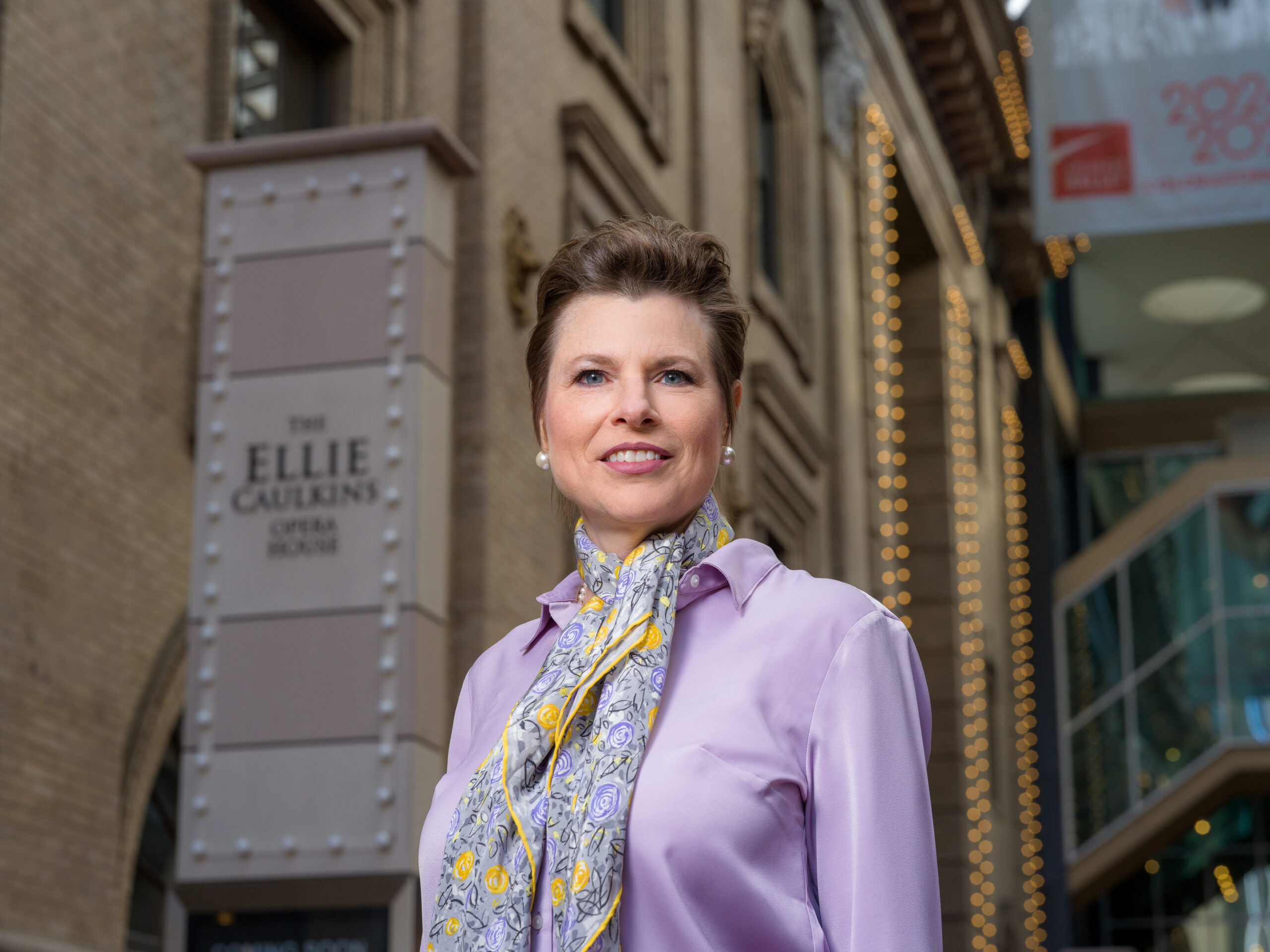Opera Colorado’s new CEO has a reason to believe

Barbara Lynne Jamison is nobody’s fool.
Stepping aboard the teetering ship known as Opera Colorado, she understood what challenges awaited on her arrival. Succeeding Greg Carpenter in the dual role of general director and CEO, she voiced a mixed message as she welcomed a recent visitor to company headquarters.
Opera Colorado has an uphill financial climb, and she knew it when the contract to lead the company was set before her.
“Was I hesitant (to accept the job)?,” she said. “A wise person always is.” Then she continued without hesitation: “I’m excited about our prospects for the next decades.”
Numbers don’t lie. Last season, the annual budget was announced at $7.6 million for three productions. But money was in short supply — from both ticket sales and donations.
The third, season-ending staged show, “Il Trovatore,” had to be scaled back to a concert version, causing the budget to be sliced to around $5.5 million. Then came the announcement for this season, which would be limited to only two staged productions in the Ellie Caulkins Opera House. The two are guaranteed sellers: Verdi’s beloved “La Traviata” (opening on Saturday, Nov. 1) and Puccini’s beloved “Madama Butterfly” (opening May 2).
According to Jamison, this new season will be budgeted down to $5 million.
Still, she is optimistic.
“I’m hoping there’s a reason to believe,” she said. “This company has a great reputation. When I arrived, I didn’t find it as a sinking ship.”
Jamison began her tenure on Aug. 1, following stints as head of Kentucky Opera, and as director of programs and partnerships at Seattle Opera. She pointed to her work in Seattle as ideal preparation for her focus on improving Opera Colorado’s status in Denver.
While in Seattle, according to her bio, she forged “meaningful partnerships with local organizations, enhancing the (Seattle) company’s community impact.”
Achieving greater success here, and setting a new course, is “up to the community,” Jamison said.
“We’ve done all ten of the top ten operas (here) in the last five years,” she said. “Is that what the community wants? That’s not necessarily what I want. But maybe that’s what the community wants. That’s part of what we as an organization need to discover. Is opera big enough for all of us?”
Choosing repertory is part of what attracts audiences, and encourages financial support. Deciding what an opera company presents has always been a tricky subject, since newcomers to opera might prefer hits by familiar names such as Puccini, while seasoned opera-goers may tire of seeing the old warhorses and simply stay away.
During a recent Zoom presentation, Jamison told an online gathering of a few dozen that she would love to expand the choice of operas into contemporary works.
“New, old – I wish I could do all of them,” she said.
New operas are being composed and staged, but the cost and the financial risk are beyond the means of companies dealing with limited budgets. And that, she noted, includes almost everybody.
“I was at a forum (of opera administrators) in Los Angeles last year,” she said, “and we heard that only companies in China are doing well. And it’s not any different in Europe.”
Not that Jamison and her administrative staff are giving up. Yes, ticket sales for “Traviata” are brisk, as one would expect for this crowd-pleaser (two of the four performances were close to sell-outs a week before opening). But no company can survive solely on sales. Aggressive marketing, foundation support, building community awareness, increasing cash contributions are all necessary to ensure Opera Colorado’s long-term survival, the company’s director stressed.
For starters, establishing season subscriptions means fewer single tickets remain to be marketed and sold. Here, the company boasts an enviable record.
“Even during the transition (from the lengthy Carpenter Era to the start of Jamison’s tenure), the subscription model has been consistent, and remains among the highest rate (of renewals) in the country,” she said.
Jamison noted that corporate support had “disappeared” following the disaster of COVID-19, and the government relief money resulting from the pandemic also ran out.
Ironically, there had also been a shrinking of individual small donations in recent years.
“That seemed to shift in 2008,” Jamison reported with a look of frustration. “Some people felt their (small) gifts didn’t really matter. But everyone matters. People have to know that, and very few people know.”
The current season was planned long before Jamison’s arrival, but the 2026-27 line-up is being mapped out now, she said. As for how many operas will be produced, she remained mum.
“We’re exploring all options. Nothing is off the table.”
A company spokesperson said the new season will be announced in late January.


















